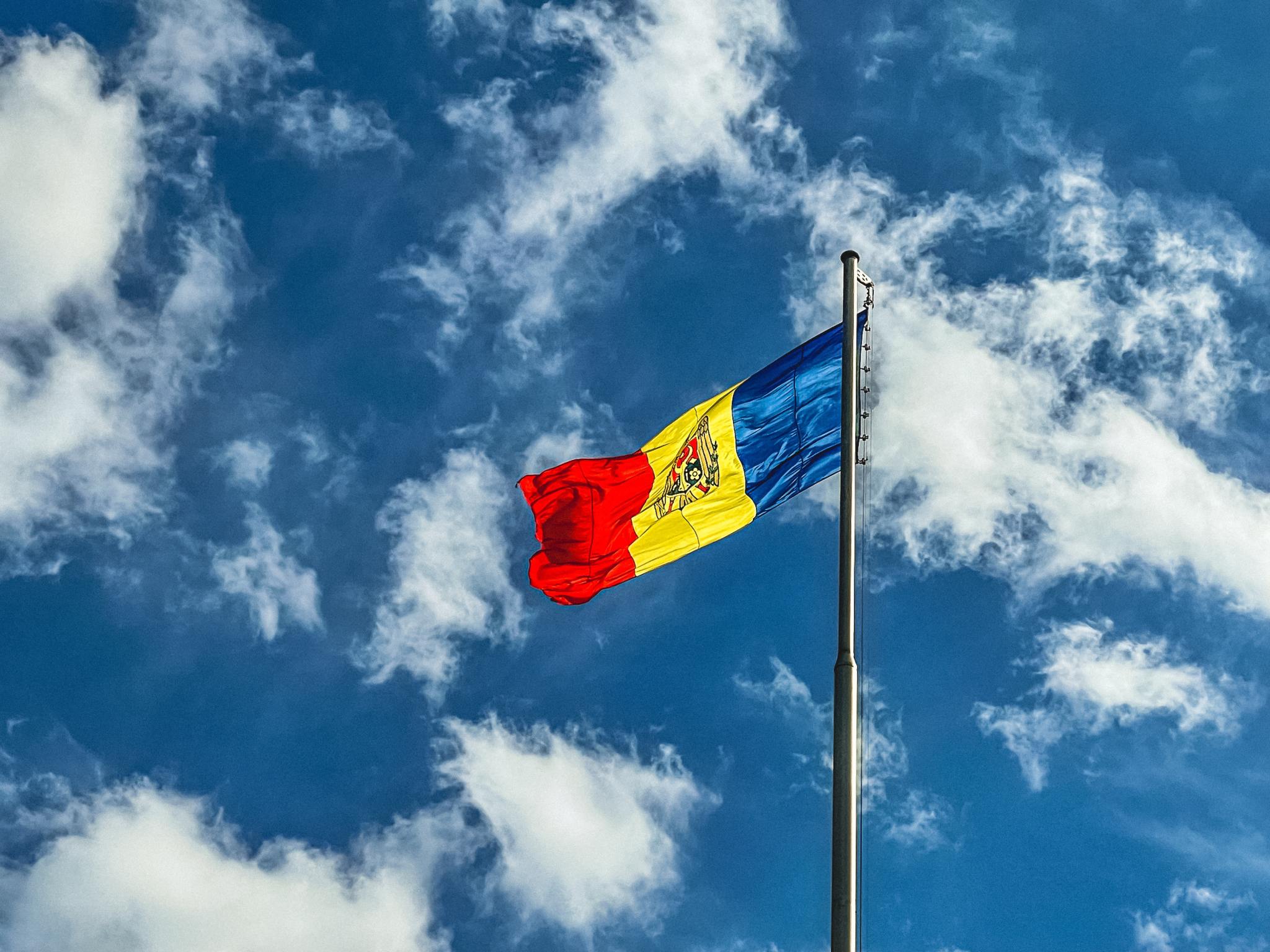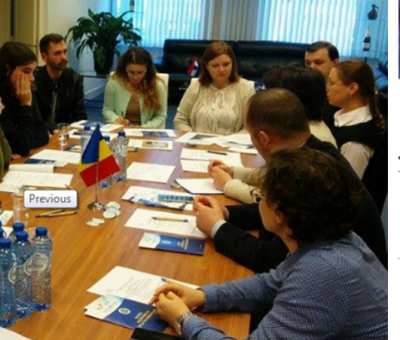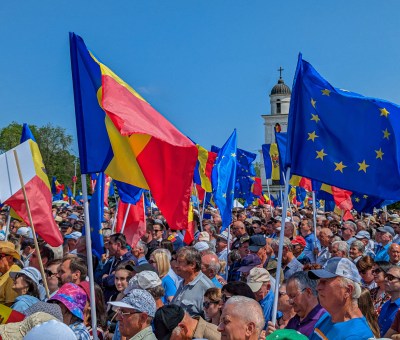
This spring, the International Republican Institute (IRI) will commemorate the 20th anniversary of opening a field office in Chişinău, Moldova. IRI-Moldova will write a three-part blog series looking back on the last 20 years of programming. This first blog will focus on the early stages of providing democracy assistance in the country.
Moldova has been highlighted as a “bright spot” of democracy in Europe, with unprecedented democratic expansion amid global democratic backsliding. Its progress is remarkable following various waves of political scandal, economic woes, and institutional challenges since gaining independence in 1991.
Amid Russia’s full-fledged invasion of Ukraine and perpetual malign influence within the region, it’s important to underscore the significance of preserving democracy in countries that stand on the frontlines of the struggle.
IRI has been a consistent in-country presence supporting key democratic actors throughout its time in Moldova. “We were there, and we supported the organizations with support and training,” said Stephanie Palen, the Deputy Director for Eurasia, who began on the Moldova portfolio in 2015. “IRI continued to believe that progress could occur, even when Moldovan partners sometimes did not have hope.”
In 2003, Steve Nix, the Senior Regional Director for Eurasia, was approached by the then U.S. Ambassador to Moldova about opening a field office to offer on-the-ground assistance.
There was no shortage of unique challenges working inside Moldova. The last popularly elected Communist Party in Europe still governed the country, entrenched and resistant to reforming its democratic institutions. The constant shifting sands of political parties saw burgeoning pro-reform political parties appear, unite, and then disappear and often only acted as marriages of convenience.
“IRI’s entry point was always and still is to have a multi-party, competitive, political system,” said Nix. “That is what we started working on immediately in 2003 and that is what we are still working on today.”
IRI used public polling data to help political parties better target voters and tailor messaging to better address citizens’ concerns. IRI also led and provided technical assistance on running effective political campaigns while establishing platforms for improving women and youth inclusion in political processes.
IRI has offered to train all political parties and movements since, which has provided the organization with a strong reputation in Moldova across the political spectrum. “Some parties might not be inclined to like IRI, but they will still engage with us and understand that our work is legitimate and valid,” explained Chris Holzen, IRI’s Senior Advisor to Europe and Eurasia.
Leading up to the 2009 parliamentary election, IRI was successful in helping build the capacity of pro-reform political parties and their ability to form coalitions, which coalesced into the emergence of the Alliance for European Integration. IRI then began working to promote reform-oriented parties and to level the playing field between the parties of power and opposition parties. Based on polling data, Moldovans wanted change and reform, so IRI worked alongside pro-reform political parties to better communicate that to voters while furthering trainings and providing technical knowledge for elections.
Moldova was taking promising steps toward improving its democracy, as the 2014 parliamentary election was shaping up to be Moldova’s most competitive election. It was also further aligning with the West, signing the EU Eastern Partnership Agreement in 2014 despite continued threats from Russia.
However, Moldova still had a long way to go to address many issues that affected institutionalizing effective democratic governance. This would become particularly clear when the “theft of the century” came to light in 2014, becoming a key turning point for Moldova’s democratic future and how IRI would support its development.
The next blog will discuss the legacy of this theft and the trajectory that lead to the emergence of now President Maia Sandu and the Party of Action and Solidarity.
Top
